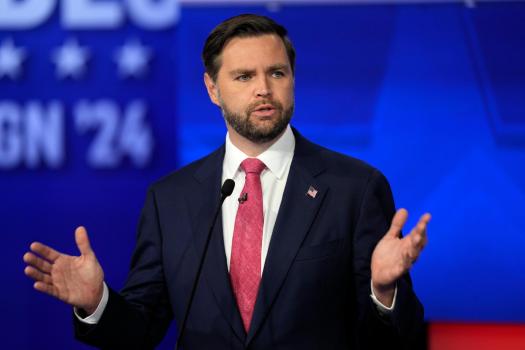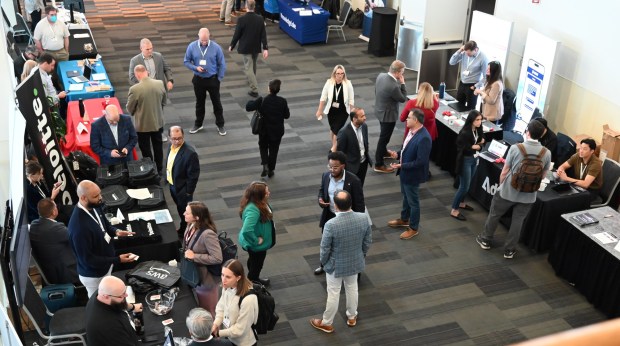According to an old proverb, in a presidential election, people only vote for the president and not the vice president. The decision, which is often reserved for potential presidential hopefuls, can be crucial, as seen by Californian Kamala Harris’s rapid rise to her party’s presidential selection last summer.
This year, it was with Republican U.S. Senator JD (for James David) Vance of Ohio and Democratic Governor Tim Walz of Minnesota. It’s very obvious that Walz’s strange remarks on Republican President-elect Donald Trump and his selection of Vance initially made him well-known.
In the past, he was almost unknown on a national scale. However, Walz did well as a prospect, and there were more possible negative aspects to alternative options. He thus unexpectedly rose to national prominence, at least temporarily. It seems that Trump’s choice of Vance, who was previously well-known for his 2016 autobiography Hillbilly Elegy, was far more complicated.
Vance worked as a venture capitalist in Silicon Valley for a few years after his book became a hit, and this experience played a significant role in his choice to be Trump’s running mate. Perhaps more than anything else, Trump was drawn to him because of his connections to billionaires in the San Francisco suburbs.
After all, Vance said on Facebook in 2016 that he alternates between believing that Trump is America’s Hitler and that he is a cynical individual like Nixon who wouldn’t be all that bad—and might even prove useful. It wasn’t until he ran for the U.S. Senate in 2022 that the comment was made public.
Additionally, Vance called Trump a moron and a jerk. He now claims that his present boss’s relatively recent opinions are out of date. Since Trump has elevated Vance to a national level of prominence, he has become Vance’s best friend. It makes Vance seem like an opportunist.
Trump’s own decision, which included total exoneration of Vance’s prior opinions on him, seemed to be full of opportunism. Trump informed people who inquired that Vance now understands, whereas previously he simply didn’t. This might be a novel approach to re-education, as defined by Chinese communists.
Trump s choice may turn out to be a pretty good illustration of another old saying, If you want to understand a story, follow the money because plenty of Silicon Valley money followed the choice of Vance. Donations to the Trump campaign were at least $100 million and maybe as much as $200 million, both direct and indirect.
Peter Thiel, for example, a major venture capitalist and PayPal co-founder, was no Trump enthusiast until after the new president-elect chose Vance, a Thiel protege. Thiel and pals like fellow venture capitalist Marc Andreesen kicked in tens of millions and raised even more from others, the precise amount yet to be fully reported.
Vance has also collaborated with David Sacks, a rich technologist from the Bay Area. Sacks sat beside Trump last summer at a $300,000-per-person fundraising dinner on San Francisco s Nob Hill, where Trump informally polled the room on his choice for veep. Some of those present also helped persuade billionaire Tesla and X owner Elon Musk to become a Trump activist; he eventually kicked in more than $75 million.
At the same time, sources say, many venture capitalists view Vance as a potential barrier to revival of a tax plan proposed by Harris and President Joe Biden that aimed to impose a 25% levy on unrealized capital gains valued at more than $100 million. This plan could cost some venture capitalists billions.
The high-tech Republican-leaning billionaires also are reported to view Vance as their shield against tough regulation of artificial intelligence. They (and their Democratic cohorts) also successfully lobbied Gov. Gavin Newsom to veto a state bill that would have imposed the world s first regulations on A.I.
Some also think Vance may help them fend off heavy taxation of cryptocurrency profits. All of this means there has rarely been a more obvious case in which following the money helps explain a major political decision.
The plain reality is that if Vance had not spent some years in Northern California, he almost certainly would never have graced this year s Republican ticket. It s a much more complex story than what happened among Democrats, even if Walz was even more obscure than Vance before last summer.
Email Thomas Elias [email protected], and read more of his columns online atcaliforniafocus.net.
Note: Thank you for visiting our website! We strive to keep you informed with the latest updates based on expected timelines, although please note that we are not affiliated with any official bodies. Our team is committed to ensuring accuracy and transparency in our reporting, verifying all information before publication. We aim to bring you reliable news, and if you have any questions or concerns about our content, feel free to reach out to us via email. We appreciate your trust and support!



